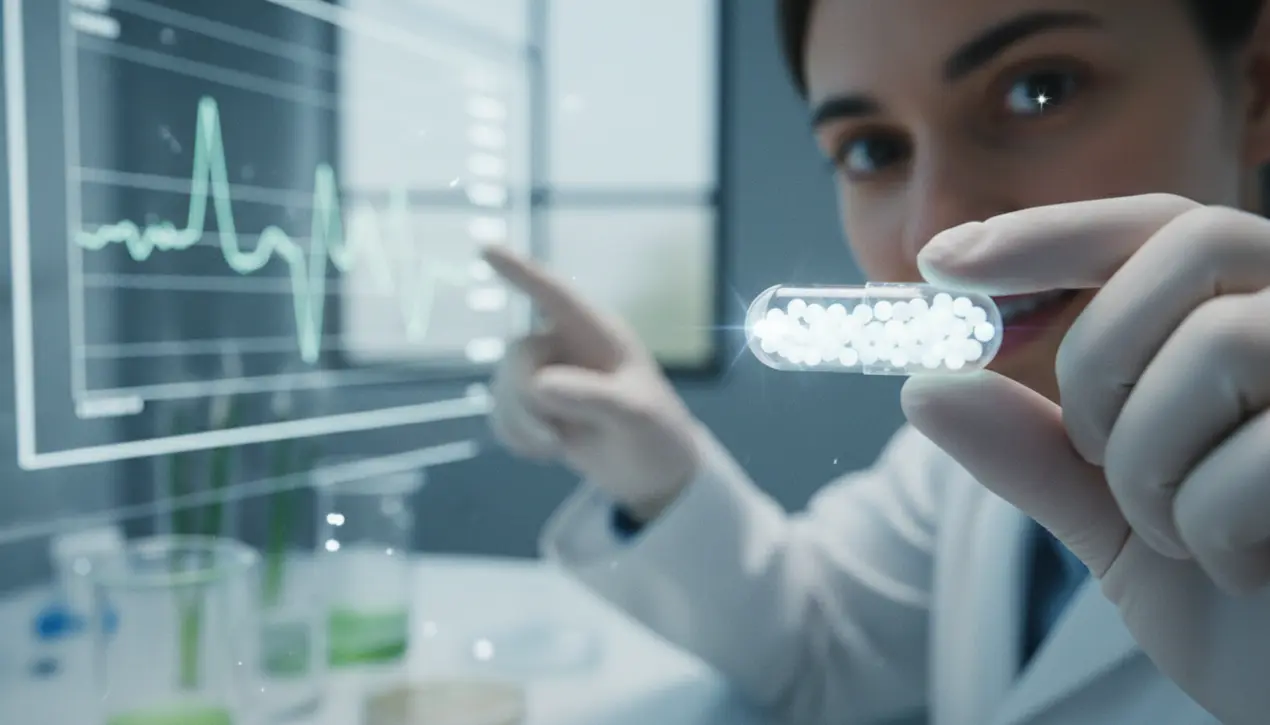
SciencemedicineMedical Technology
This tiny pill could change how we diagnose gut health
KE
Kevin White
20 hours ago7 min read5 comments
In a development that feels ripped from the pages of a near-future medical thriller, researchers are pioneering a radical new diagnostic tool: tiny, ingestible spheres packed with engineered bacteria that act as living sensors within the human gut. The core innovation lies in their programming; these microbial sentinels are designed to detect intestinal bleeding by literally glowing when they encounter heme, the iron-containing molecule at the heart of hemoglobin.While the recent successful trials in mice, published in a leading scientific journal, represent just the first critical proof-of-concept, the implications are staggering. This technology, sitting at the powerful convergence of synthetic biology and precision medicine, promises to fundamentally overhaul how we monitor debilitating conditions like Crohn's disease and ulcerative colitis.Instead of subjecting patients to invasive, uncomfortable, and often delayed procedures like colonoscopies or relying on imperfect stool tests, this 'smart pill' could offer a quick, non-invasive, and continuous window into gut health. The engineered bacteria, typically a safe laboratory strain of E.coli, are housed within a semi-permeable shell that allows small molecules like heme to diffuse in. Once inside, the heme triggers a pre-programmed genetic circuit, activating the genes responsible for producing a bioluminescent enzyme.This faint light can then be detected by specialized equipment outside the body, effectively turning internal, hidden bleeding into an external, measurable signal. The potential applications extend beyond inflammatory bowel disease (IBD); imagine a future where these biosensors are tailored to detect specific cancer biomarkers, monitor medication levels in real-time, or even assess the complex balance of the gut microbiome itself.Of course, the path from murine models to human clinical use is fraught with challenges, including ensuring the complete safety and containment of engineered organisms within the human body, navigating the rigorous regulatory landscape of the FDA and its international counterparts, and scaling up manufacturing. Yet, the trajectory is clear.This isn't merely an incremental improvement on existing diagnostics; it's a paradigm shift towards a more dynamic, personalized, and proactive form of healthcare, where our own bodies are integrated with benign biological tech to provide a constant stream of actionable health data. The era of the sentient gut is dawning.
#featured
#ingestible sensors
#gut health
#diagnostic technology
#engineered bacteria
#intestinal bleeding
#medical diagnostics
#noninvasive monitoring
Stay Informed. Act Smarter.
Get weekly highlights, major headlines, and expert insights — then put your knowledge to work in our live prediction markets.
Related News
Comments
Loading comments...
© 2025 Outpoll Service LTD. All rights reserved.